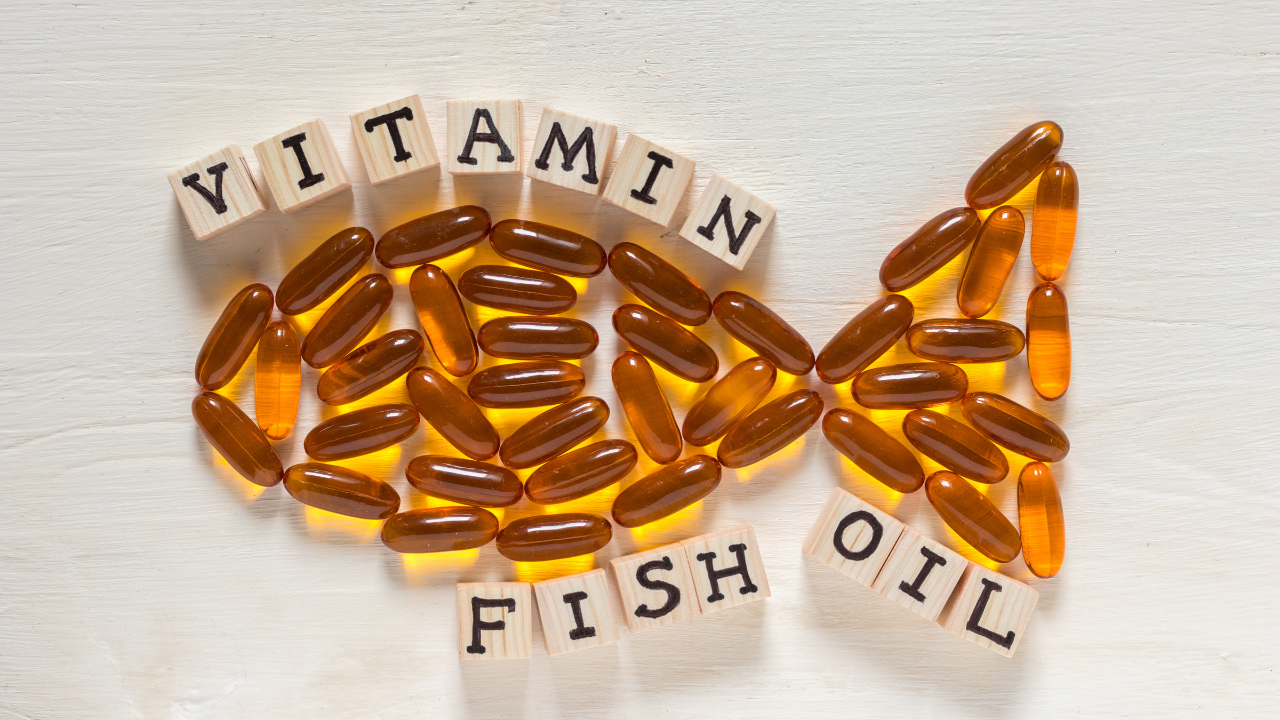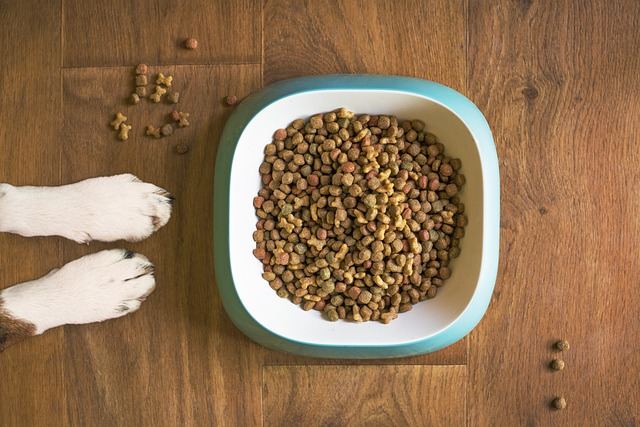
Adding fresh Omega-3's to your pet's diet is essential for health. From practically every organ system in the body to the health of the skin and coat its inclusion in the diet has been shown to be beneficial.
Is flax oil better for dogs? What about olive oil or Coconut oil?
Dogs and cats cannot produce Omega 3 fatty acids and are very inefficient at converting healthy plant oils such as flax oil to Omega-3 fatty acids as humans are. So flax and other plant oils (except algal oil supplements) cannot replace fish oil for cats or dogs.
My pet is allergic to fish. What can I give them?
Krill oil or oil from algae are options for pets that have a true fish allergy. It's more likely they are reacting to the many toxins, chemicals, and inflammatory nature of commercial kibble.
One often overlooked but vital component is the inclusion of Omega-3 fatty acids added to our pet's diet at the time of feeding. Omega'3 are fragile and often destroyed when added to commercial pet food. You simply cannot count on their inclusion in the food as enough. They are too important for the prevention of inflammation, organ function, and offsetting the Omega-6's in processed food to not supplement your dog or cat's diet.
It's important to use fresh Omega-3's added to homemade food or at the time of feeding as they oxidize or become rancid. In this blog post, we will explore the importance of maintaining a balanced Omega-6 to Omega-3 ratio and discuss various options for incorporating Omega-3s into your pet's food.
Understanding the Omega-6 to Omega-3 Ratio:
Omega-6 and Omega-3 fatty acids are essential polyunsaturated fats that play crucial roles in maintaining overall health. However, achieving a proper balance between these two fatty acids is paramount. In a natural diet, such as that of wild animals, the ratio of Omega-6 to Omega-3 fatty acids is relatively equal, around 1:1 or 2:1. AAFCO recommends that the Omega 6 to Omega 3 fish oil ratio not exceed 30:1. So that means not supplementing with fish oils can leave your pet contending with an increased risk of inflammation.
The Shift in Commercial Pet Food:
Unfortunately, the modern commercial pet food industry has undergone changes that have disrupted this delicate balance. Many pet foods now contain high levels of Omega-6 fatty acids and inadequate levels of Omega-3 fatty acids. While Omega-6s are necessary, excessive amounts can lead to inflammation and other health issues if not balanced with Omega-3s.
The Consequences of Imbalanced Ratios:
A significant concern arises from the substantial increase in the Omega-6 to Omega-3 ratio in commercial pet foods, which can reach as high as 30:1. Such imbalanced ratios have been linked to various health problems in pets, including chronic inflammation, immune system dysfunction, skin issues, joint problems, and even cognitive decline.
What are the signs that your dog or cat is not getting enough fish oil?
Your pet may have a dull, dry coat with fine dander, and they might be more likely to show signs of a skin allergy with inflamed areas, itching, and skin infections. What's worse is the effects on virtually every organ system in the body influenced by a deficiency of Omega-3's.

What are the beneficial effects of omega-3 for dogs and cats?
Omega-3 fatty acids, specifically eicosapentaenoic acid (EPA) and docosahexaenoic acid (DHA), offer a multitude of health benefits for your beloved companion. These fatty acids have been shown to:
- Reduce inflammation: Omega-3s possess powerful anti-inflammatory properties, which can alleviate conditions like allergies, arthritis, and inflammatory bowel disease, promoting overall comfort and mobility.
- Support cardiovascular health: Omega-3s can reduce the incidence of arrhythmias and help maintain muscle mass in dogs with heart failure.
- Promote a healthy coat and skin: Omega-3s contribute to a lustrous coat and healthy skin, combating dryness, itchy skin, hot spots, and dandruff while nourishing from within and reducing an inflammatory response in the body.
- Cognitive enhancement: DHA, an Omega-3 fatty acid, is essential for brain development and maintenance. By including Omega-3s in your pet's diet, you can help prevent cognitive decline, and studies show better learning in puppies dosed with Omega-3s.
- Behavior: Omega-3 levels are likely to be lower in aggressive dogs, and supplementation is recommended.
- Support kidney function: EPA and DHA were found to inhibit inflammation and protect the kidneys by decreasing the progression of kidney disease. A study in 2005 showed that cats fed a diet enriched in Omega-3's had longer survival times.

Even if you are feeding a fish-based kibble, you should supplement with fish oil as farm-raised fish are lower in Omega-3's than wild-caught fish. Supplementing with fish oils will offset any deficits.
Now that we understand the significance of Omega-3s let's explore a few practical options to ensure your pet receives an adequate amount in their diet:
- Natural food sources: Consider incorporating whole, unprocessed foods rich in Omega-3s. Fatty fish such as salmon, sardines, and mackerel are excellent sources. However, be cautious about potential mercury content and opt for wild-caught varieties. For cats, I would recommend fish oil or incorporating it into your homemade cat food recipe. Otherwise, I would opt for fish oil.
- Fish oil supplements: High-quality fish oil supplements designed for pets can be an effective and convenient way to provide Omega-3s. Look for products derived from small, wild-caught cold-water fish to minimize the risk of contamination.
-
Algal oil supplements: Algal oil is an excellent alternative for pets with fish allergies or for those following a vegetarian or vegan lifestyle. Derived from marine algae, algal oil provides a sustainable and plant-based source of Omega-3 fatty acids, including EPA and DHA. These supplements are designed specifically for pets, ensuring they receive the optimal dosage without any potential allergens or contaminants.

How much Omega-3 fish oil for dogs?
In veterinary medicine, there is a standard dose of Omega-3 fatty acids and a therapeutic dose of Omega-3 fatty acids. It's important to give the standard dose and consider the therapeutic dose with your veterinarian's recommendation. They can provide guidance tailored to your pet's specific needs and recommend the most suitable sources and supplements to meet their Omega-3 requirements.
Fish oil dosing for cats
There are not as many studies on the therapeutic use of fish oil in cats. For cats with kidney disease or arthritis (most cats over 8 or 9 years of age) it is recommended they receive 112 or 120 mg of combined EPA + DHA per kilogram of body weight. Cats with kidney disease survived longer when given diets with the highest amount of Omega-3s.
Incorporating Omega-3 fatty acids into your pet's diet is an essential step in ensuring their overall health and well-being. The imbalanced Omega-6 to Omega-3 ratios found in many commercial pet foods can have detrimental effects on your pet's health, leading to inflammation and various chronic conditions. By introducing Omega-3s, you can restore the balance and unlock the numerous benefits they offer, such as reduced inflammation, improved cardiovascular health, a shiny coat, and enhanced cognitive function.
How do I choose a quality fish oil supplement?
There are many considerations when choosing fish oil supplements. Purity is important as fish from contaminated waters contain mercury, dioxins, and other impurities. Consider the source of the fish. Some companies perform third party testing which is added assurance, Opt for a product made from wild-caught fish, preferably from cold waters, such as sardines, anchovies, mackerel, or krill. These fish species are known for having lower levels of contaminants and higher concentrations of omega-3 fatty acids. Additionally, choosing a supplement derived from sustainably sourced fish is better for the environment.
Examine the label for the concentration of EPA (eicosapentaenoic acid) and DHA (docosahexaenoic acid), the two primary omega-3 fatty acids found in fish oil. A higher concentration of EPA and DHA usually indicates a higher-quality product and ensures your pet receives the optimal amount of these essential fatty acids.
Should I use liquid fish oil or soft gels?
Fish oil supplements come in various forms, including capsules, liquids, and chewable tablets. Select a form that is convenient and easy for your pet to consume. If your pet has difficulty swallowing capsules, consider a liquid form that can be mixed with their food. I would not recommend any powdered supplement, such as a joint supplement, to provide this benefit as the fish oil will oxidize in the air and not provide the intended benefit.
Freshness is also a consideration, as exposure to air will cause the oil to degrade over time. Keep your oils away from heat or in the refrigerator.
How much Omega 3 fish oil should I give my pet?
Currently, AAFCO, which regulates pet food ingredients, does not have a minimum requirement of DHA and EPA in adult maintenance diets. They do, however, have a requirement for growing puppies and based on research that puppies given DHA and EPA had a better cognitive function. This makes sense from what we know about prenatal needs for humans.
It's important to note that the amount of fish oil in milligrams is different than the amount of Omega-3's (DHA and EPA) in the product. For example, a gel cap may contain 1,000 mg of fish oil but only 660 mg total of DHA and EPA. It's also important to note that recommendations vary widely, which is frustrating I know. What I would recommend is giving the high end of the dose for pets eating a processed diet that likely has a higher Omega 6:3 ratio.
How do I go about adding fish oil to cats?
I recommend starting with 1/2 the recommended dosage to make sure your pet can tolerate it. Increase to the full amount after two weeks. Nutrition experts have not established an appropriate dose and dosing method for fish oil. More research is needed. Currently, the suggested dose is 30-50 mg/kg. The average cat would get 200 mg per day combined DHA/EPA.
How much fish oil for dogs?
Adult dogs receiving a fish oil supplement: suggested dose is 50-75 mg/kg. So a 22-pound dog with a calculated weight of 10 kg (1 kg =2 .2 pounds)should receive 500-750 mg of Omega 3 fish oil. A 50-pound dog should receive 1,000-1,500 mg.
What about therapeutic fish oil supplementation?
There is not a lot of research or information about the therapeutic dosing of fish oil in cats.
Here is a link to the recommendation from Colorado State Veterinary Teaching Hospital for dosing dogs with osteoarthritis. The dosing is based on something called metabolic body weight:
https://vetmedbiosci.colostate.edu/vth/services/orthopedic-medicine/fish-oil-dosing/
You should consult your veterinarian before giving a therapeutic dose for dogs or cats. In my experience, dogs will get loose stools and stomach upset on the therapeutic dose. It's better to give a lower than therapeutic dose when it comes to fish oil supplementation than to not give it at all.
When is the best time to give fish oil?
Fish oil is best absorbed with a meal along with other fats. The minimum dose might not be objectionable, but dosing higher amounts for arthritis, kidney issues, and allergies may require a higher recommended daily dose. If this was recommended by your veterinarian, you can try splitting this up between meals. Some pets will get diarrhea on a higher dose of fish oil, so in that case, give a lower dose, as getting some is better than getting none at all.
Can you give too much fish oil?
While supplementing with fish oil can help maintain healthy skin and coat, too much fish oil is not recommended. Too much will likely cause gastrointestinal upset and loose stools, weight gain, altered immune function, altered platelet function, and potentially Vitamin E deficiency.
Are there any drug interactions with fish oil?
Fish oil can prolong bleeding time, so it is best to stop before any surgeries. Follow your veterinarian's recommendation for dosing if your pet has a bleeding disorder. There shouldn't be an issue as long as you do not give too much. Always incorporate any supplement into your pet's diet gradually and follow your veterinarian's recommendation for dosing, especially if the intended use is to benefit joint health, itchy skin, kidney issues, cardiovascular disease, or allergy relief. They may benefit from a therapeutic dose, which is higher than the recommended dose.
What are some high-quality supplements?
Holistic Vet Blend has a wild-caught, sustainably sourced fish oil for dogs and cats that contains deep water fish: anchovy, sardines, and mackerel. I also recommend Nordic Naturals fish oil (Omega-3 Pet). There are quality brands for humans, such as Thorne, Nature Made, and Carlson's. I find these may work better for large breed dogs that you can add a gel cap to their food. As a rule of thumb, always avoid farmed fish.
In conclusion, the benefits of fish oil for pets cannot be overstated. From promoting healthy skin and coat to supporting, brain, and joint health, omega-3's are essential for virtually all aspects of health. However, due to the high Omega-6 to Omega-3 ratio in commercial pet food, it is especially important to consider adding a high-quality fish oil supplement to your pet's diet.
Choosing a supplement made from wild-caught fish, such as sardines, anchovies wild salmon, mackerel, or krill, is the best way to ensure that your pet is receiving a high-quality, sustainable product that is free from contaminants. Additionally, selecting a supplement with a higher concentration of EPA and DHA will provide your pet with optimal amounts of these essential fatty acids.
While kibble diets may be convenient, they often lack the essential nutrients that pets need for optimal health. Adding a high-quality fish oil supplement to your pet's diet is an easy way to bridge the gap and provide your furry friend with the nutrients they need to thrive.
As always, consult with your veterinarian to determine the appropriate dosage and ensure that the supplement you choose is safe and appropriate for your pet's individual needs. By making this simple addition to your pet's diet, you can help support their overall health and wellbeing for years to come. Don't wait, invest in your pet's health today!

Reference:
Plantinga EA, Everts H, Kastelein AMC, Beynen AC. A retrospective study of the survival of cats with acquired chronic renal insufficiency offered different commercial diets. Vet Rec 2005;157(7):185-187.










